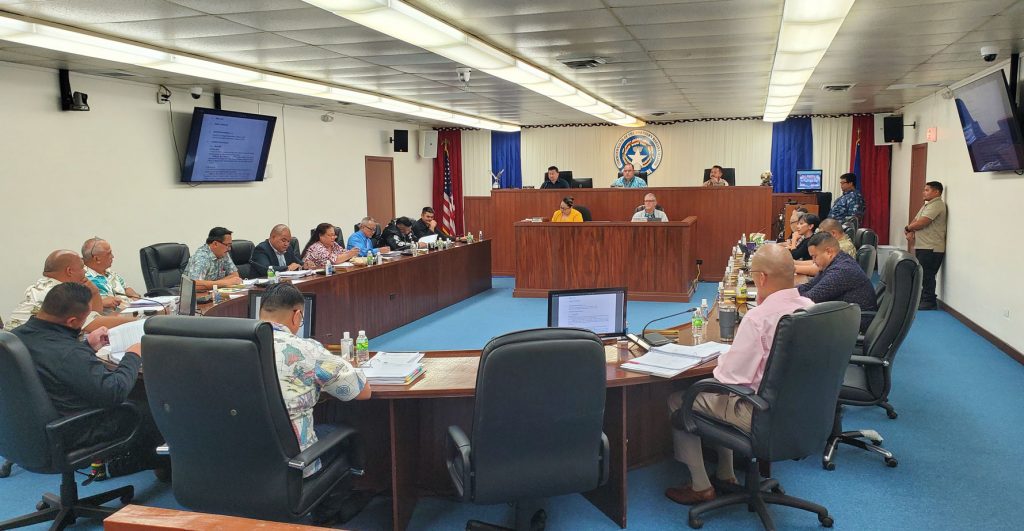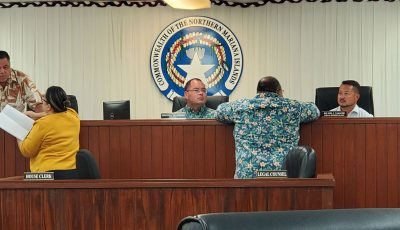House unanimously OKs bill to amend BOE quorum rule

House of Representatives Speaker Edmund S. Villagomez (Ind-Saipan) presides over a session in the House chamber yesterday morning. (FERDIE DE LA TORRE)
The House of Representatives unanimously passed yesterday on first and final reading a bill that will reduce the Board of Education’s quorum requirements from four to three members.
With all 19 House members voting “yes,” House Bill 23-20 now goes to the Senate for action. Reps. Manny Gregory T. Castro (Ind-Saipan) and John Paul Sablan (Ind-Saipan) introduced the legislation during a House session yesterday. Several other members co-sponsored the bill.
Before the voting, Castro, who chairs the House Committee on Education, said there is nothing political in this bill. “This bill is purely to provide equity,” he added.
Castro compares the current state of affairs at the Public School System to “a big ship with a small rudder.”
“This bill will is going to allow us to give that rudder some flexibility to steer wherever it needs to be. Given the financial issues, given all the things that need to happen expeditiously, we are just making it equitable across the board,” Castro said.
The BOE serves as the rule-making authority that oversees and implements policies that govern PSS. It failed to meet the quorum requirement during meetings last Feb. 1, 14, and 24.
Rep. Marissa Renee Flores (Ind-Saipan) agreed that the bill is about equity and that they do believe in the model of PSS, which is “Students First.” “And because of that, the action of this bill supports ‘Students First’ and everything else I believe is secondary. But right now, today, what we are doing is to ensure that there is equity,” she said.
The BOE consists of five voting members, but the presence of four voting members shall constitute the necessary quorum to conduct meetings. Yesterday’s bill will amend the Commonwealth Code to allow three voting members to constitute a quorum.
Castro and Sablan stated in the bill that establishing a quorum for the BOE is problematic. They noted that most of the boards in the CNMI require a simple majority of members to conduct business. They said this simple majority is large enough to ensure legitimacy, while also being small enough to secure flexibility.



























